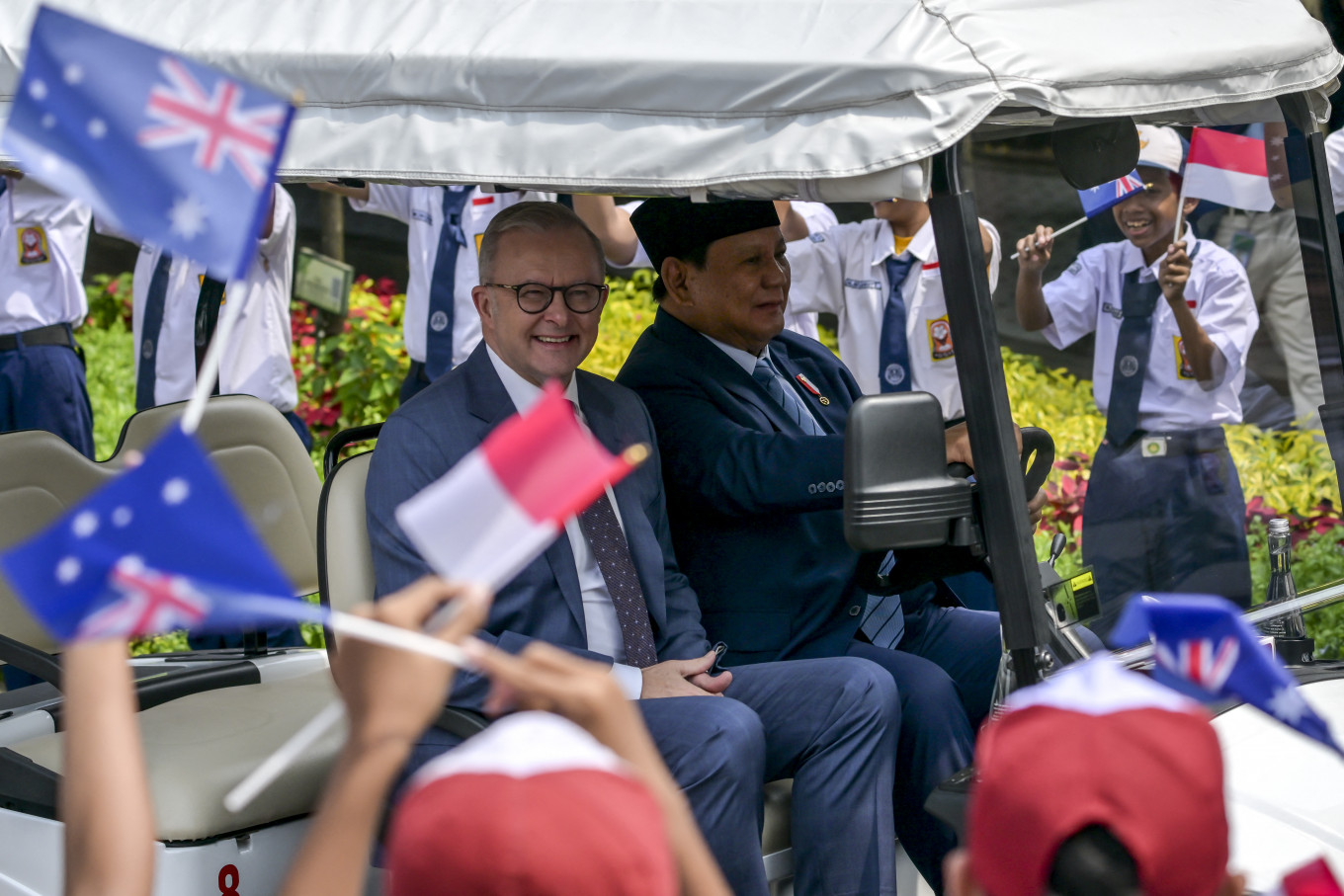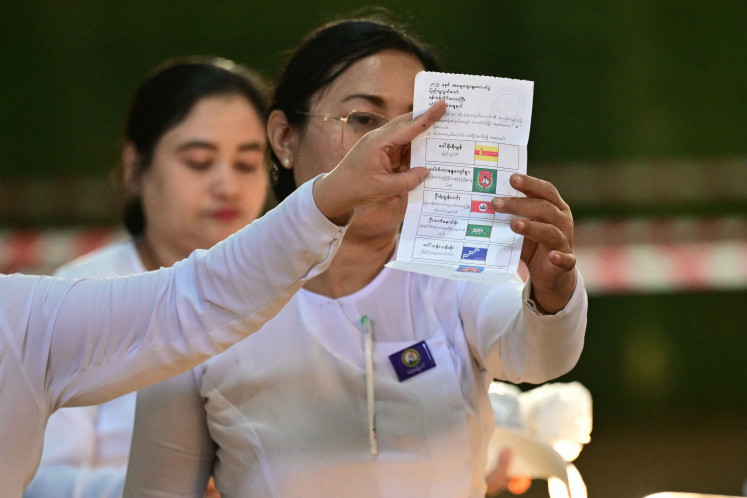Popular Reads
Top Results
Can't find what you're looking for?
View all search resultsPopular Reads
Top Results
Can't find what you're looking for?
View all search resultsWhy Albanese’s visit keeps Indonesia guessing
The Prabowo-Albanese partnership has the potential to inspire the development of a coordinated mechanism for the rapid deployment of combined forces in times of need, such as the December 2004 tsunami.
Change text size
Gift Premium Articles
to Anyone
T
hree years after the Sept. 11, 2001 twin towers attack in New York, the United States, I witnessed a meeting in Pejaten, South Jakarta, between former Australian prime minister Paul Keating and then chief of the Indonesian State Intelligence Agency (BIN), Hendropriyono.
The question Hendropriyono put directly to Keating was: “How can Indonesia best manage the post-9/11 US-Indonesia security relationship?” Keating’s answer was as relevant then as it is today: “Just keep them guessing.”
Two decades on, the tide has turned. Since the end of the Keating era (1991-1996), successive Australian governments have favored a closer formal military alliance with the US at the expense of detente with China. Indonesia, on the other hand, has pursued a successful non-aligned policy characterized by what Indonesia calls a “free and active” (bebas-aktif) approach. This has maintained Indonesian neutrality, prioritized national interests and advanced regional stability through diplomacy.
For Australia, the very opposite has come to pass. Canberra is now in the awkward position of having to navigate an increasingly unpopular AUKUS security agreement under an erratic, unpredictable and increasingly unreliable administration of President Donald Trump. This has damaged Australian relations with China, Australia’s most significant trading partner.
AUKUS is a trilateral security partnership between Australia, the United Kingdom and the United States. It primarily involves the transfer of eight nuclear-powered submarines to Australia. Understandably, in Indonesia, regional nuclear proliferation has caused “deep concern”.
This unease is shared by the Australian Peace and Security Forum. According to a forum member, Maj. Gen. (ret) Mike Smith, Keating was right. Consistent with Keating’s long-standing position, Smith argues the importance of avoiding confrontation between the US and China to maintain regional stability.
The view of the forum is that neither Australia nor Indonesia should be expressing an overtly partisan anti-China or pro-US position (and vice versa), particularly over Taiwan, as well as over third-party territorial disputes in the South China Sea.



















